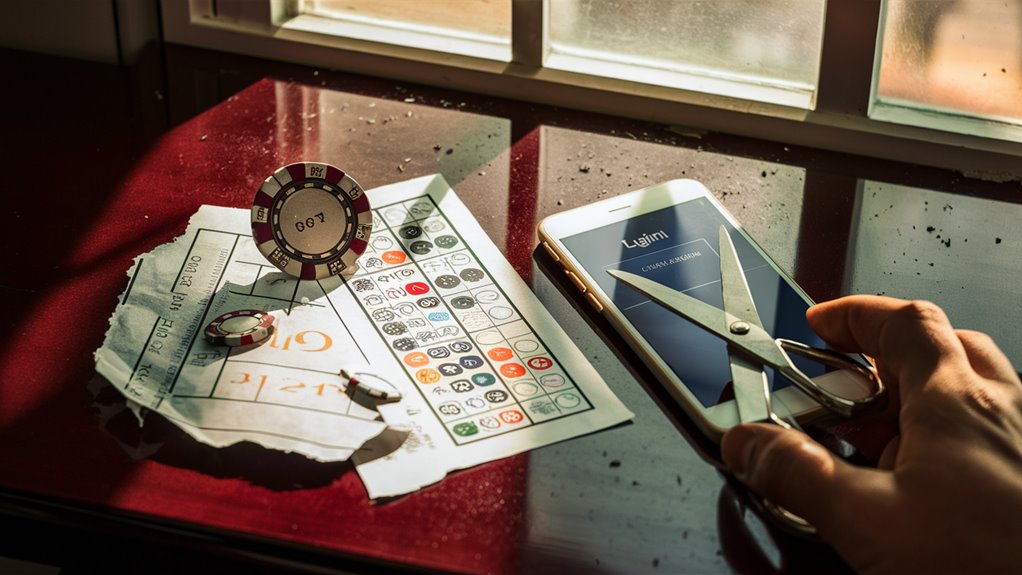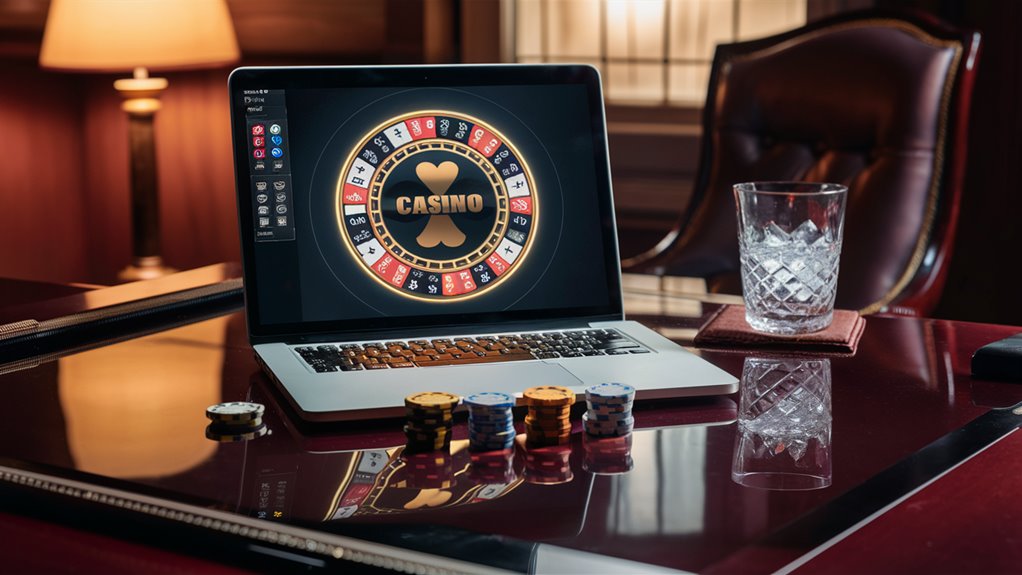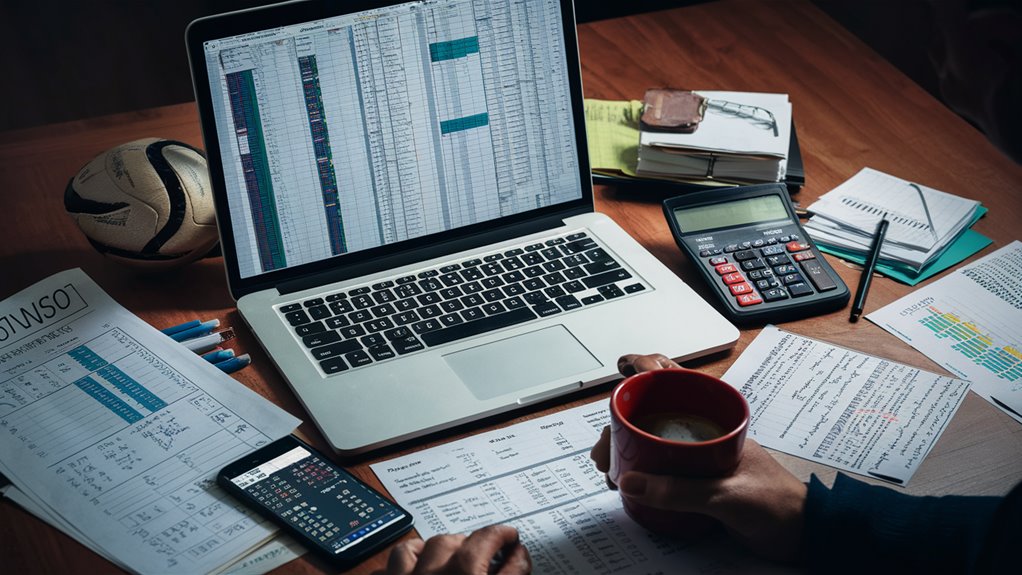How to Handle Your Gambling Habits
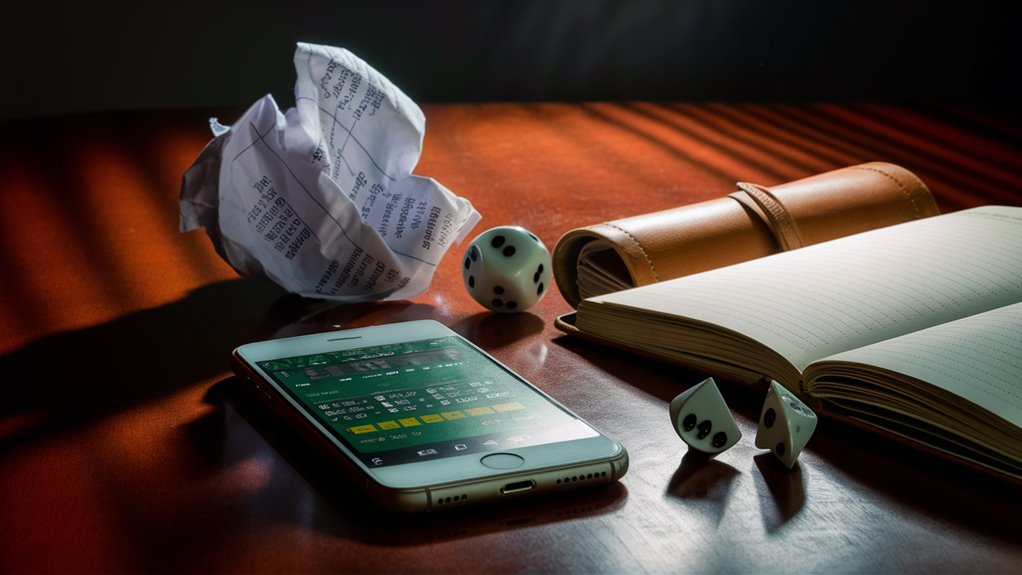
Setting Money Limits
Firm money rules are key for controlling gambling. Make a set gambling budget apart from your must-pay bills and use blocking tools on all devices to stop entry to gambling sites. Have bills pay on their own to keep important money safe and think about having a trusted person help with your finances.
Finding and Handling Triggers
Knowing your gambling triggers is vital for getting better. Note down specific patterns, feelings, and situations that make you want to gamble. Usual triggers include:
- Money worries 온카스터디 먹튀검증소 확인
- Sad or big feelings
- Friends pushing
- Being bored
- Drinking
Making a Support Group
Build a strong help group with:
- Professional gambling helpers
- Family
- Support group friends
- Recovery mates
- Mind doctors
New Fun Activities
Swap gambling actions with good tasks:
- Sports and exercise
- Fun crafting
- Learning new skills
- Helping out
- Fun times with non-gambling friends
Keeping Track of Progress
Keep an eye on getting better with:
- Writing each day
- Self-checks each week
- Regular talks with a counselor
- Apps that track your success
- Going to support meetings
Tools and Help
Use proven help resources:
- Gambling stopping tools
- Self-help plans
- Apps for managing money
- Recovery books
- Emergency phone lines
Seeing Signs of Gambling Addiction
Early Signs
Problem gambling starts slow, so seeing it early is big for stopping it. Changes in how you act show up before it gets worse. Watch for these:
- More time and money on gambling
- Chasing losses and betting more
- Taking money just to gamble
- Lying about gambling
- Feeling bad when not gambling
Life Impact
Changes in everyday life are clear as addiction grows. Keep an eye on:
- Worse work results
- Issues with family and friends
- Sleep trouble
- Always thinking about gambling
- Going over past bets often
Money Warning Signs
Money troubles are often the biggest signs of bad gambling:
- Less money saved
- Maxed credit cards
- Selling things to gamble
- Hidden bank moves
- Many loans
Feeling and Mind Signs
Watch these mind warning signs:
- Worries about gambling issues
- Feeling low
- Guilt after gambling
- Moods swinging with wins or losses
- Staying away from friends
Strong Money Rules for Safe Gambling
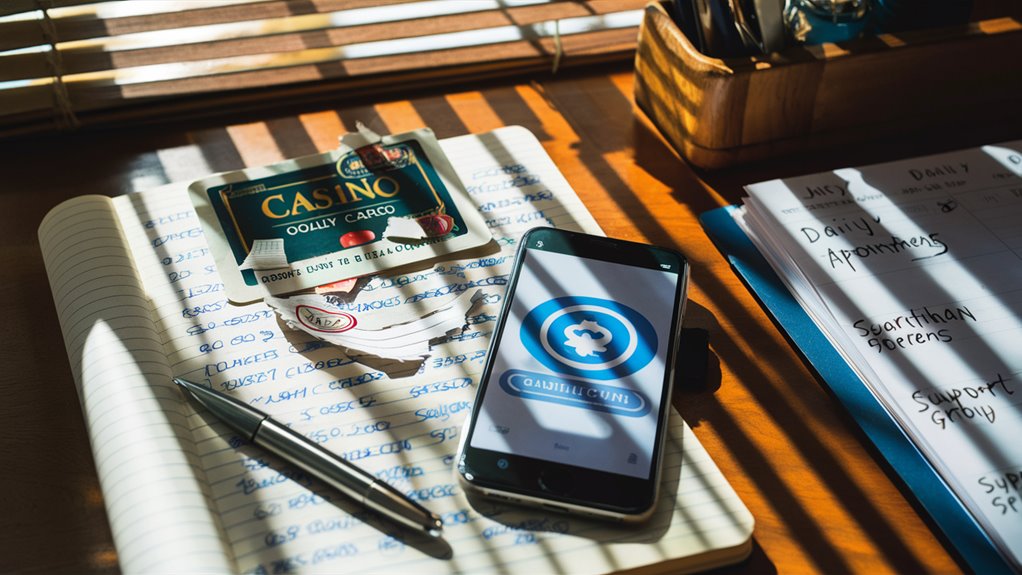
Core Money Rules
Money limits are basic for safe gambling.
Make a fixed fun budget just for gambling, think of it as extra spending. Have a special gambling bank account away from everyday cash and saving to keep clear money lines.
Safe Steps
Leave all cards home when you go to gamble, just take the cash you can spend. When that’s gone, you stop, no exceptions. Set bank rules to stop betting money over your limit, and use blocking tech to stop online betting.
Keeping Money Honest
Track all you spend on gambling carefully. This keeps a clear record and shows early if you break your rules. Think about letting a family member handle your money when you start setting these rules. These money safety steps work only if you stick to them fully.
More Safe Steps
- Put in gambling-block apps
- Set auto stops on payments
- Make spending alerts
- Keep tight records of buys
- Set max loss limits
Building a Strong Help Group for Gambling Recovery
Pro Help: First Defense
Pro gambling helpers are key for good recovery. A certified gambling person gives proven help plans and finds personal triggers. The National Problem Gambling Help Line connects you with pros who use mind-behavior help made for gambling recovery.
Family and Close Circle Help
Trusted family and friends are big support in getting better. Talking open about gambling challenges helps stay true. Pick trusted people who can:
- Watch how you get better
- Support you without judging
- Help with money in early days
- Keep giving you hope and support
Friends in Recovery
Recovery friends like Gamblers Anonymous give big help through shared life stories. These groups offer:
- Real-life ways to cope shared by those who know it well
- Help in person or online
- Regular check-up meetings
- Plans for staying better long-time
Your Help Group List
- Talk to pro gambling helpers
- Find family members for support
- Join local or web recovery places
- Set regular talks with your help group
- Make urgent talk-to plans
- Set up money honesty systems
Knowing and Seeing Gambling Triggers
Seeing Personal Triggers
Knowing gambling triggers is a big step in getting better. Personal triggers are specific places, feelings, and times that make you want to gamble. Knowing these helps make plans to stay away and cope.
Mind Trigger Check
Noting how you feel before gambling shows key points. Usual emotion triggers include:
- Stress and worry How to Play and Win at Craps Online
- Feeling alone
- Looking for thrills
- Feeling low
Places and Times That Trigger
Usual places and times that start gambling urges:
- Getting paid times
- Money tight spots
- Fighting in relationships
- Near casinos
- Ads for betting
- Social media betting posts






